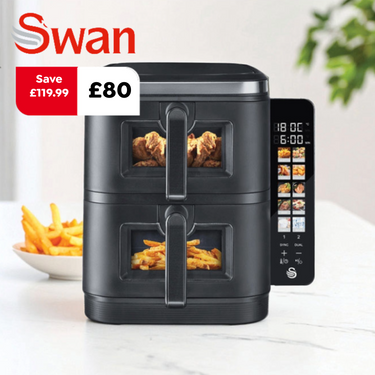Efficient & Energy Saving Appliances & Tips
Cost of living is the highest it’s been in decades and UK households face a huge leap in energy prices. The price cap, set by the regulator Ofgem, will increase again from October 2022 as announced in August. Household energy bills will continue to grow exponentially, with steeper upwards trajectory projected for 2023. Right now, we’re all looking for ways to reduce our energy consumption, so choosing the most energy efficient household appliances can help save energy and money which hopefully translate into cheaper bills. But some household appliances guzzle more energy than others. Find out which are the biggest users of electricity in the home and take a look at some energy efficient alternatives. We’ve also rounded up some top tips to help reduce your energy consumption and bills, as well as quick guide to how energy labels work, so you know what to look out for.
Wet Appliances: Consume More Energy

Washing machines, tumble dryers and dishwashers account for 14% of a typical energy bill. The power needed to heat the water they use pushes up energy consumption.
You can reduce some energy consumption by:
- Choosing to wash clothes at a lower temperature
- Avoid washing half loads to save on water, and save on energy to heat the water for a half load
- Wash clothes when necessary, rather than after every wear (where appropriate)
- Wait until your dishwasher is completely full before setting it on
- Use the Eco setting on your dishwasher rather than a higher temperature
- Get stuck in with some elbow grease, and hand washes dishes instead of using your dishwasher frequently.
- Avoid using the tumble dryer too often, instead try air drying clothes or use a heated clothes airer. Heated airers consume less energy than a tumble dryer.
Cold Appliances

Fridges and freezers account for around 13% of the average household’s energy bill. These appliances need to stay on all the time, so they’re continually consuming energy to maintain a constant temperature. Their average lifespan is around 17 years, and since they’re on 24 hours a day, there is a benefit to investing in an energy efficient one. Look out for the energy efficiency label and ensure to choose the smallest size to fit your needs.
Lighting

Lighting takes up around 5% of an average home’s total energy bill. To reduce the amount of energy consumed by lighting:
- Replace halogen bulbs with LEDs where possible
- Turn your lights off when you’re not using them or when you leave a room
These simple tips alone could save you around £50-£70 on your annual energy bill*
Cooking

Cooking is a must, but are your cooking habits costing you too much? Around 4% of your energy bill is spent on powering kitchen appliances including the hob, oven, kettle and microwave.
Make some simple swaps and adjustments to shave off some extra pounds from your energy bill:
- Microwaves use less energy than ovens, as they heat the food and not the air space inside
- Avoid over-filling the kettle, and heating water you don’t need
- Switch to an air-fryer. Air-fryers also consume less energy than the typical oven
Baths & Showers

Basic hygiene is a must, however you could be more energy efficient here too just by saving some time.
- Where possible, keeping your shower time to around 4 minutes could save a typical household anywhere from £50 upwards a year*
- Swap your bath for a shower. Less water is used and less energy consumed to heat the water. Swapping one bath per week to a 4 minute shower could save around £10 per year*
How Do Energy Labels Work?

All appliances are tested for how much energy they use, to give a rating on a scale of A to G. A being the most efficient and G being the least efficient.
Some appliances also use the following scale A+++ to G, with A+++ being the most efficient.
It’s key to look out for these when choosing an appliance, to give you an indication of how much energy they will consume in your home. This will also help you decide if it’s worth investing in a more energy efficient appliance than the one you have to save you money in the long run.
Appliances are also categorised by their size. This essentially means 2 appliances of different sizes but with the same energy efficiency rating might use different amounts of energy costing you more or less money.
The best thing to do is to check the appliance energy efficiency label and look for the appliance with the best energy rating for the size you require.
Other money saving blog posts you may be interested in:
Tips & Tricks to Slash Food Bills
Make Your Beauty Products Last Longer
*Source: Energy Saving Trust, Sept 2022. Visit https://energysavingtrust.org.uk/ for more information.








